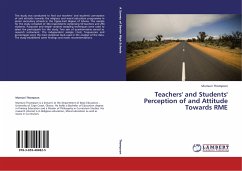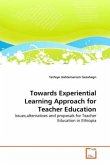The study was designed to investigate public perception about non-governmental organizations' (NGOs) contribution in providing basic education opportunities in Peshawar. A comparative study of public, private and NGO schools was conducted to explore the issue at hand. The collected data were statistically analyzed and association among the three groups was calculated. It was found from the data that more than 44% of the respondents chose public schools, where as about 31% opted for private schools and nearly 25% relied on NGO schools for their children. Out of those whose choice was NGO schools i.e. 55% were from poor households. As a whole 67% of the respondents were against the involvement of NGOs in education sector. Nearly 72% of the NGO schools were providing free primary education and the remaining 28% were imparting technical education as well. The respondents in general viewed that NGO schools were improving literacy rate and lessening the burden of the government, however, they believed that the quality of education at NGO schools could be improved if these schools were properly supervised.








